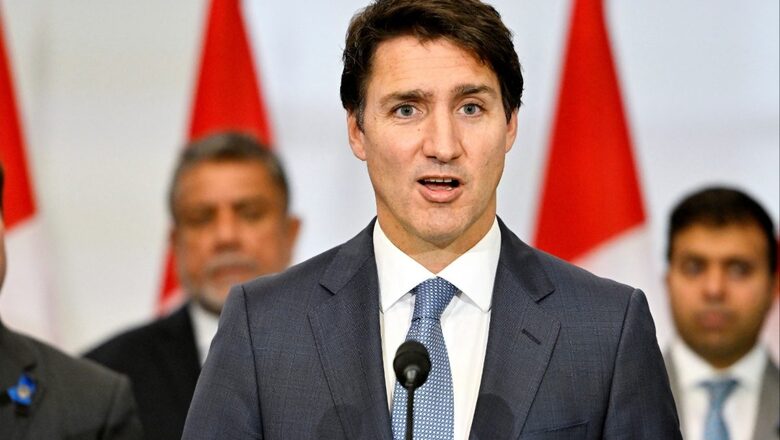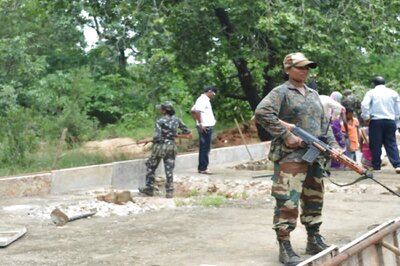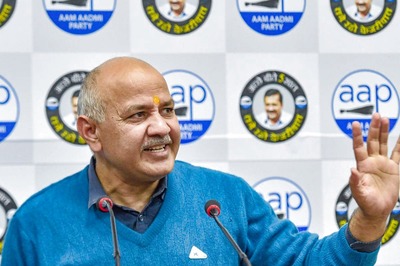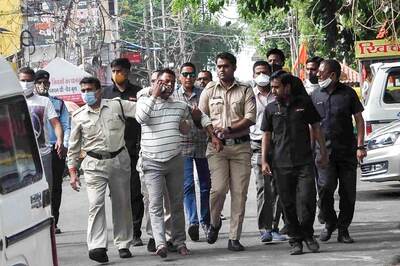
views
Has Canada failed to learn from its past? And is that the reason that has led Prime Minister Justin Trudeau led government in Canada to buckle under the pressure of Khalistan supporters and terrorists to make unsubstantiated allegations against India regarding recent killing of a Khalistan terrorist on its soil?
Award winning and much respected Canadian journalist Stewart Bell’s book Cold Terror: How Canada nurtures and exports terrorism around the world provides useful insights in this regard. The book was first published in 2004 and later revised in 2007. In addition to the Islamic terrorism, it also talks about the inept handling of the Khalistan movement which is being run from Canadian soil.
Here are some key takeaways from Bell’s observations that can help one understand the root cause of the present crisis between India and Canada in context of Canada’s lame duck approach towards terrorism:
- Talking about the bombing of an Air India plane in 1985 by Khalistani terrorists that killed 329 people on board, Bell observed, “Air India was Canada’s 9/11. Proportional to Canada’s population, the death toll was equal to that of the attacks of September 11. Air India (incident) should have prompted the government to pass anti-terrorism legislation and commit to security and intelligence. Instead, it opened the door for other extremist groups to set up bases inside Canada and export their terror abroad. Canadian politicians did virtually nothing about terrorism after Air India, and there was no public groundswell to force them to do anything, probably because, once again, the victims were mostly Indo-Canadians, which made it easy to portray the attack as targeting an isolated segment of Canadian society rather than a more fundamental assault on Canada, its security and its value systems. Security and intelligence budgets were reduced on the false assumption that the end of the Cold War had made them unnecessary. The government did not even revoke the charitable status of the Babbar Khalsa until 1996. And even then, proposals to crack down against charities fronting for terror were rejected by the Liberal cabinet.”
- Raising questions about the way investigations into Air India incident was handled, Bell said, “…While there were serious problems with the investigation, that was not the main lesson of the Air India disaster. The first lesson of Air India was that when terrorists harness their cause to religion, there are no limits. Canadian State Intelligence Service(CSIS) thought that if Sikh extremists were going to attack Air India, they would hijack a plane. They thought that way because they viewed Khalistan as a political movement. Hijacking is a political act; terrorists seize an airplane full of passengers and make a series of demands, gaining publicity for the cause and concessions such as the release of an imprisoned terrorist leader. …However, Khalistan had become a religious extremist movement.”
- According to Bell, the failure of Air India (and, for that matter, the failure of 9/11 as well) was not realising just how evil terrorism had become, that it was war without limits, killing for the glory of God. When all else is stripped away—the ideologies, the dogmas and the hatreds—what is left is one fundamental question: how can terrorists indiscriminately kill others to promote their cause? Terrorism is not a crime of passion, it is coldly calculated. Air India was planned well in advance….
- Bell makes a significant observation about a lesson that terrorists have learnt in terms of using Canada as a safe haven, “There was another lesson to come out of Air India, but this one was for the terrorists. The world’s terrorist organizations might have different causes, they might kill for different Gods, but they do not work in isolation from one another. They train together, buy weapons from one another and learn from each other’s mistakes. The terrorist groups working inside Canada learned a valuable lesson from the early spillover wars. That lesson was: the fastest way to put yourself out of business is to kill Canadians. The Sikh extremist organizations survived the aftermath of Air India, and indeed the chief suspects lived freely for a decade and a half until they were charged. But the disaster put Sikh militancy under a microscope, tarnished the cause and gave the Sikh community in Canada the momentum it needed to push the extremists aside. The mistake of the extremist …Sikhs was to commit acts of violence within Canada. On the other hand, as long as you don’t bomb any departmental stores in British Columbia, shoot any Ottawa embassy guards or blow-up planes filled with Canadians, the government will leave you alone and you are free to preach all the hatred you want and raise limitless sums of money to pay for war, terror and insurgency overseas. Canada deplores the import of terror to its peaceable kingdom, but appears indifferent to the export of terror. The money raised in Canada might pay for weapons and explosives that kill thousands of civilians in far-off lands, or it might finance an attack next door in Los Angeles, but the victims will safely be viewed as only Turks or Indians or Americans or Israelis. As long as the killing occurs outside Canada’s borders, Canada is your playground. It is your safe haven.”Terry Milewski, another Canadian journalist throws light on the reluctance of politicians in Canada to crack down on the Khalistan movement in his book Blood for Blood: Fifty Years of the Global Khalistan Project as he wrote, “In Canada, too, the conflict turned to politics. But, unlike their comrades in Punjab, the extremists in Canada went from strength to strength, showing an astute understanding of law, politics and media. It is a question often asked by Indians: why do Canadian politicians pander to Sikh extremists? The short answer is that it is not easy to look out at a throng of 100,000 on Vaisakhi Day, knowing they might vote for you if you keep your mouth shut, and then to open it instead and risk losing the votes. Most politicians evidently prefer to avoid the risk and, by exploiting that tendency, Canadian Khalistanis have made it normal to celebrate murders of the right sort.”
He further adds, “This collective shrug from the Canadian political class inevitably emboldened the separatist lobby – and the acquittals in the Air India trial, in 2005, doubled the effect. The Khalistanis had won a victory and began to reap the benefits.”
Conclusion
It is clear that the roots of the present crisis lie much deeper in the political system of Canada. Canadians, however, must remember that every country which has nurtured or protected terrorists in the name of ‘liberal values’ has suffered at the hands of the same terrorists. Its neighbour and close ally United States of America is the biggest example. Many countries in the western world have learnt their lessons from the recent history of terrorism and have started cracking down on any kind of terrorism of extremism but many are still to learn!




















Comments
0 comment